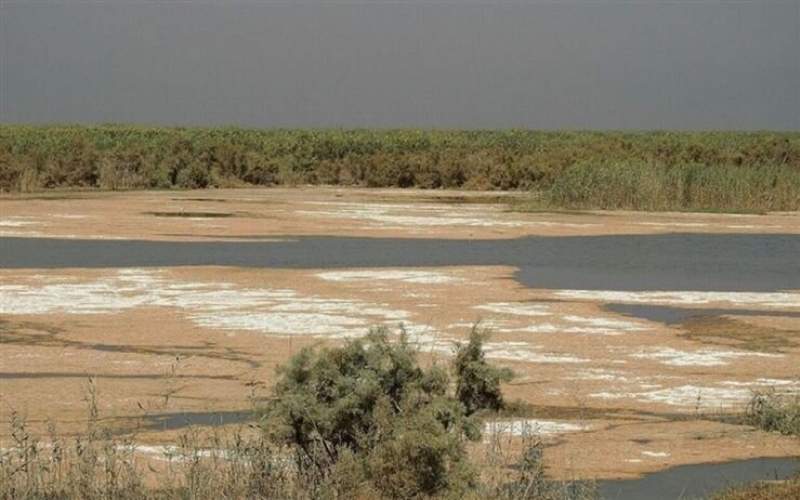The Iran Project
: Lack of rainfalls in autumn will certainly fuel the unpleasant situation of the wetlands in the country.
Sunday 7 January 2024 - 14:26
Story Code : 411211
Source : Tehran Times
Dry weather in autumn threatens wetlands
In the last few years, the impact of climate change on the country has been observed; the rainfall patterns have changed, that is, the rain has peaked in the spring, while it has been low in the fall and winter.
Also, precipitations have changed from snow to rain, this situation shows how well the country has adapted itself to the new conditions.
The decrease in precipitation and the subsequent lack of water availability resources will definitely cause many problems for human societies.
The agricultural sector will be affected, and the industry will definitely face problems in supplying the required water.
However, the entire burden of drought is usually imposed on the wetlands since water that would normally flow into them is extracted or diverted.
Wetlands are not in good condition and many of them are on the verge of extinction.
Wetlands disappearing
Wetlands are disappearing three times faster than forests and are Earth’s most threatened ecosystem. In just 50 years — since 1970 — 35% of the world’s wetlands have been lost, according to the UN.
In Iran, the excessive increase of illegal wells has endangered the life of wetlands.
Statistics show that the number of unauthorized wells has increased from 15,000 to 400,000 in the last five decades, which has caused many of the country's plains and wetlands to dry up, IRNA reported.
The high number of these wells means that there is no more capacity for underground water sources.
Over the past few years, we have been continuously hearing unpleasant news about the country's water situation. Drought and low rainfall have caused many problems and exacerbated the situation.
All of them indicate that the condition of reservoirs and underground water resources is not favorable.
Official data show that about 90 percent of the country's area is affected by drought with different severity and weaknesses. Also, about 270 cities in the country are suffering from water stress.
In this situation, many problems occur in different sectors, including the environment. Wetlands are one of the areas where wells endanger their life.
If we take a look at the process of drilling wells in the country, both authorized and unauthorized, we can see that the exploitation of underground water in the plains has intensified in the last four decades.
The effect of this process is very dangerous for the life of wetlands and their watershed basins.
The drilling of deep wells in the plains and agricultural fields causes irreparable damage to the country's wetlands.
Climate change disrupting rainfalls
In December 2023, the Department of Environment (DOE) asked its subsidiaries to carry out a detailed study on climate change and its causes due to the decrease in annual precipitation, particularly this year.
Despite the Meteorological Organization’s forecasts that there would be adequate autumn rainfall, the amount of rainfall reported has been very low, IRNA reported.
Ali Salajeqeh, head of DOE, asked the Office for Marine Environment and Wetlands, the National Climate Change Research Center and the Environmental Research Institute to cooperate and investigate the causes of low rainfall this year.
Climate change, rather than regional factors, is responsible for disrupting rainfall patterns in the country, Darioush Gol-Alizadeh, head of the national center for weather and climate change affiliated with the Department of Environment, said.
Climate change has already inserted many harmful effects on our country, and if we do not take steps to adapt ourselves to the consequences of this phenomenon and observe environmental principles, in the future, more dangerous consequences will surely plague Iran and make the conditions more unfavorable for human, animal, and plant species.
Reporter : Editorial of The Iran Project
# Tags











